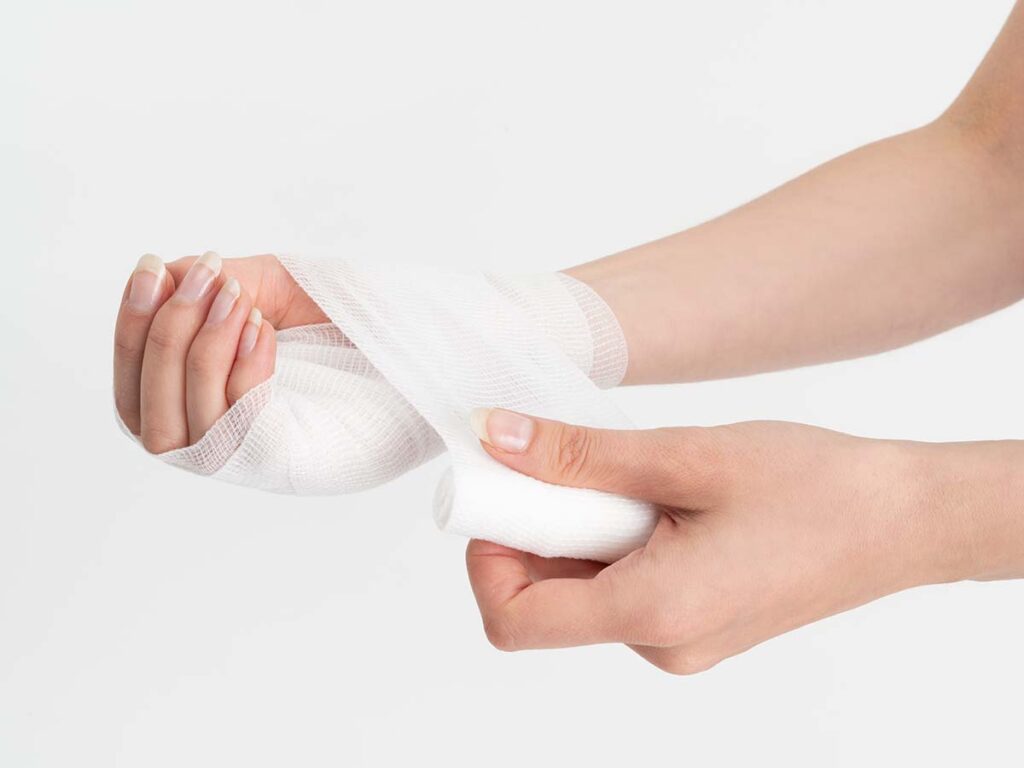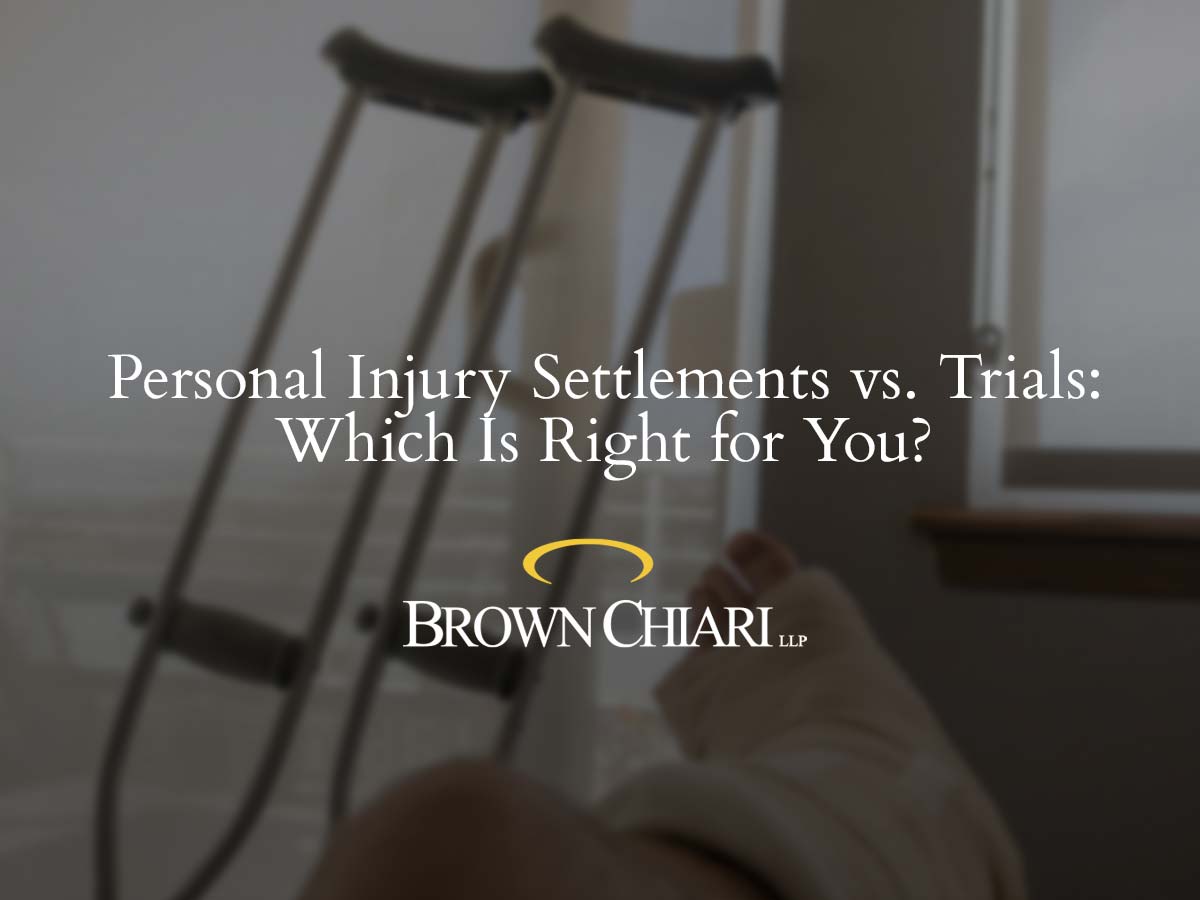When you’re involved in a personal injury case, one of the most critical decisions you’ll face is whether to pursue a settlement or take your case to trial. Each option comes with its own set of benefits, risks, and potential outcomes. Knowing the differences between the two paths can help you make an informed decision about which is best for your unique situation.
This guide will walk you through everything you need to know about personal injury settlements vs. trials, the pros and cons of each, and how an experienced personal injury attorney can help you achieve a favorable outcome.

What Is a Personal Injury Settlement?
A personal injury settlement occurs when the injured party and the at-fault party (or their insurance company) reach a mutually agreed-upon settlement amount to resolve the personal injury claim without going to trial. This process typically involves settlement negotiations where both sides discuss the value of the claim.
How Personal Injury Settlements Work
- Negotiation: The injured party or their personal injury attorney communicates with the insurance company to negotiate a fair settlement.
- Settlement Agreement: Once an agreement is reached, both parties sign a settlement agreement, which releases the at-fault party from further liability.
- Payment: The injured party receives compensation sooner, often within weeks or months, as opposed to waiting for the outcome of a trial.
Benefits of Settling a Personal Injury Case
- Faster Resolution: Settlements are usually quicker than going to trial, which can involve prolonged litigation.
- Lower Costs: Settlements often result in lower legal costs compared to the expenses of a court trial.
- Certainty and Finality: Once a settlement agreement is signed, the case is resolved, and there is no chance of appeal.
- Reduced Stress: Avoiding the courtroom experience can reduce the emotional strain of the legal process.
Drawbacks of Settling
- Potentially Lower Compensation: Insurance companies often aim to settle for as little as possible, which could result in lower compensation than what might be awarded in court.
- No Opportunity to Pursue Additional Compensation: Once a settlement is signed, the injured party cannot seek further compensation for the same claim.
What Is a Personal Injury Trial?
A personal injury trial occurs when the injured party and the defendant cannot agree on a settlement amount, and the case goes to court. In a trial, a judge or jury decides the outcome of the case after both sides present evidence and witness testimony.
How a Personal Injury Trial Works
- Filing a Lawsuit: The injured party files a personal injury lawsuit against the at-fault party.
- Discovery Phase: Both parties exchange evidence, medical records, and information about the case.
- Trial Process: During the trial, attorneys for both sides present evidence, cross-examine witnesses, and make arguments to the judge or jury.
- Jury Verdict: The judge or jury determines the outcome, including the amount of compensation, if any, that the injured person is entitled to receive.
Benefits of Going to Trial
- Potential for Higher Compensation: Trials can result in higher compensation, especially in cases involving severe injuries or cases where punitive damages are awarded.
- Accountability: Trials can hold the defendant accountable for their actions, especially if the defendant’s negligence played a significant role in the plaintiff’s injuries.
- Jury Influence: If a jury is sympathetic to the injured party, it may result in a more favorable outcome.
Drawbacks of Going to Trial
- Higher Costs: Court trials involve expert witness fees, attorney fees, and other expenses that can add up quickly.
- Uncertainty: Unlike a settlement, a trial has no guaranteed outcome, and there is always the risk of receiving no compensation.
- Time-Consuming: The litigation process can last months or even years, resulting in a financial strain for personal injury victims.
- Stress and Emotional Toll: The formal legal proceeding of a trial can be emotionally taxing for the injured person and their loved ones.
Key Differences Between Settlements and Trials
| Factor | Settlement | Trial |
| Speed of Resolution | Faster, often weeks or months | Slower, can take months or years |
| Costs | Lower legal costs | Higher costs due to expert witness fees, attorney fees, and court costs |
| Certainty | Guaranteed settlement amount | Unpredictable, decided by a judge or jury |
| Emotional Toll | Less stressful | More stressful due to the litigation process |
| Compensation | May be lower | Can result in higher compensation, but not guaranteed |
| Control | Parties control settlement | Decision made by judge or jury |
How to Decide Which Option Is Best for You
Deciding whether to accept a settlement offer or proceed to trial requires considering several critical factors. Your personal circumstances, the strength of your case, and your financial considerations all play a role in the decision.
When Should You Settle?
- You need to receive compensation sooner.
- You want to avoid the uncertainty of a jury trial.
- You want to avoid the costs of prolonged litigation.
- The settlement amount being offered is fair compensation for your damages.
When Should You Go to Trial?
- The settlement offer is too low to cover medical bills, lost wages, and other expenses.
- You believe the defendant’s actions warrant punitive damages.
- You have an experienced legal team ready to fight for a higher compensation.
- The defendant’s liability is clear, and you have strong evidence to present.
Factors That Influence the Settlement Amount
The settlement amount in a personal injury claim depends on a variety of factors, including:
- Medical bills and ongoing medical treatment.
- Lost wages due to the inability to work.
- Other expenses like rehabilitation, travel for medical care, and in-home care.
- Severity of injuries, especially in cases involving severe injuries that result in long-term disability.
- Defendant’s negligence and the strength of your evidence.
- Financial considerations of both parties, including the cost of a lengthy court trial.
How a Personal Injury Attorney Can Help
Navigating the legal system alone can be overwhelming for personal injury victims. An experienced attorney can provide guidance, advocate for a fair settlement, and represent you during the trial process if needed. They can also handle settlement negotiations to ensure you aren’t pressured into accepting a lower compensation amount than you deserve.
An experienced lawyer can help you:
- Assess the settlement offer and determine if it is reasonable.
- Calculate the true cost of your medical expenses, lost wages, and other damages.
- Present evidence, including medical records and witness testimony, in court if a settlement cannot be reached.
- Guide you through every stage of the personal injury lawsuit, from filing a claim to pursuing a court trial if necessary.
Conclusion
Choosing between a personal injury settlement and a trial is a significant decision that can impact your financial future. Settlements offer faster resolutions, lower legal costs, and less emotional stress, while trials can result in higher compensation but carry greater uncertainty and expense. Working with an experienced attorney can ensure you make an informed decision that reflects your best interests.
If you are unsure whether to pursue a settlement or go to trial, consult with an experienced personal injury lawyer. They can evaluate your case, provide clear guidance, and fight for the financial compensation you deserve.
Learn more about personal injury settlements vs. trials: which is right for you? Call Brown Chiari LLP at (716) 681-7190 to schedule your free, no-obligation consultation. You can also reach us anytime through our contact page. Let us help you take the first step toward justice and recovery.
FAQ Section
1. What is the difference between a personal injury settlement and a personal injury trial?
A personal injury settlement is a resolution reached between the injured party and the at-fault party or their insurance company. A personal injury trial occurs when the case goes to court, and a judge or jury determines the outcome.
2. How long does it take to settle a personal injury case?
Most personal injury cases settle within weeks or months, while trials can take much longer, often lasting a year or more.
3. What costs are associated with going to trial?
A trial involves attorney fees, expert witness fees, court costs, and other litigation-related expenses.
4. Do personal injury victims receive higher compensation if they go to trial?
While it is possible to receive higher compensation at trial, it is not guaranteed. Settlements typically provide a faster and more certain resolution.
5. How do I know if I should settle or go to trial?
Consider your personal circumstances, the strength of your case, and your financial needs. Consulting with an experienced attorney can help you make an informed decision.
If you have further questions about personal injury settlements or trials, contact Brown Chiari LLP for personalized guidance and expert legal representation.
